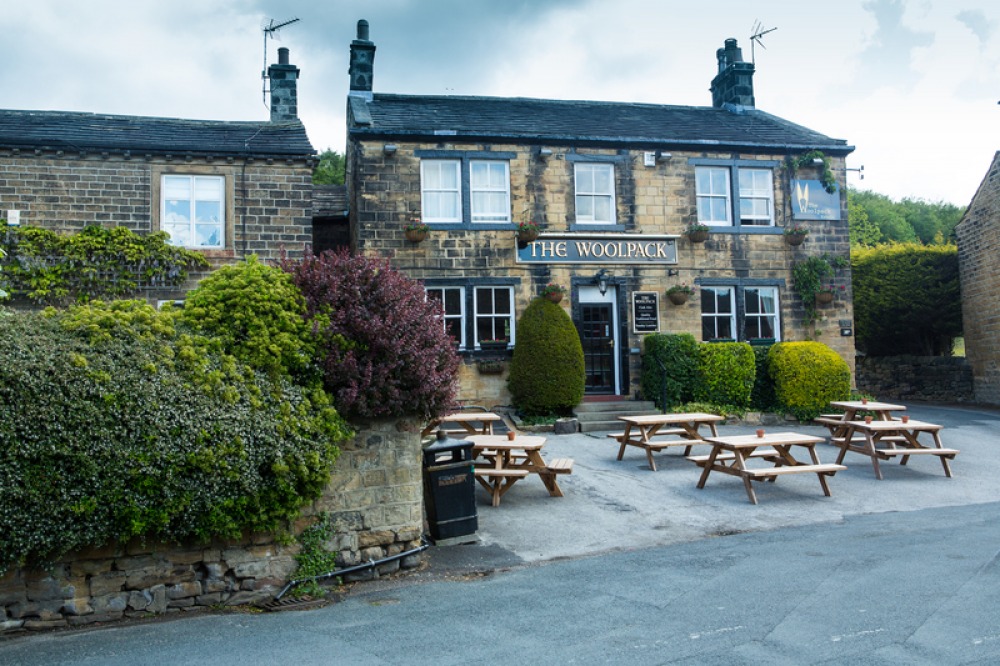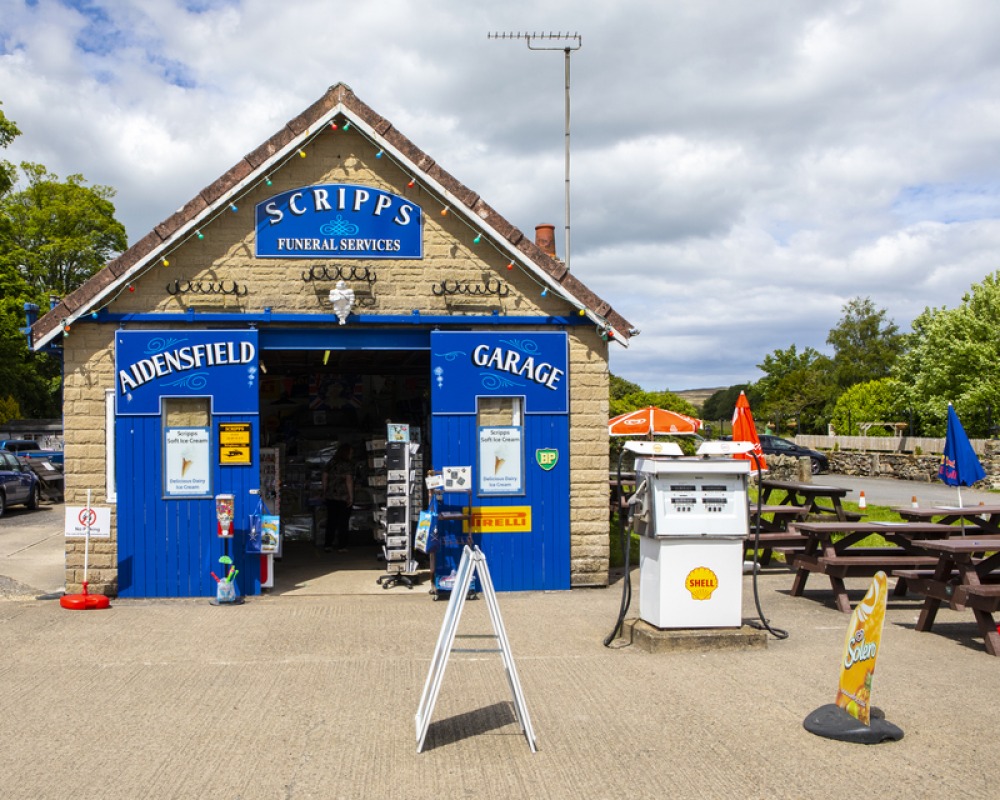The County's TV Highlights as we Celebrate Yorkshire Television's 50th Anniversary

To mark Yorkshire Television's 50th anniversary, director Stuart Ramsay is making a documentary about the channel's formative years

After the launch of Yorkshire TV in the late 1960s, the programmes produced in the decades that followed were viewed across the globe – including some that truly defined the era, such as Whicker’s World and Heartbeat. For the very first time, local news reached millions of homes across the north, and shows were created with some of the the world’s greatest actors and entertainers – right here in God’s Own County.
This year, Stuart Ramsay of Chevron Films is making a documentary about the channel’s history. ‘We’re hoping to capture a way of making television which has virtually disappeared,’ Stuart explains. The project started at the end of 2017, and recently reached its Kickstarter funding goal. ‘We created some Yorkshire TV 50th anniversary memorabilia including t-shirts, mugs and artwork as a reward for donations.’
The film, Made In Yorkshire, will take us right back to the channel’s early days, featuring interviews with some of its key figures including journalist Austin Mitchell, game show host Jimmy Tarbuck and Richard Madeley of Richard and Judy, revealing in depth why there was such a need for it at the time. ‘Yorkshire TV was originally set up to diversify the content on offer,’ Stuart says.
Prior to this, Yorkshire viewers had received their regional programming from Granada Television and ABC, both based in Manchester. ‘This meant that TV crews only covered stories within a set radius of Manchester, so there were very few reports from further afield, such as the Dales and Yorkshire coast.’ With this in mind, it was decided that Yorkshire needed its own channel, and the first step was finding a base.
It took 14 months to complete Europe’s first purpose-built colour television studios in Leeds, costing over £4 million to build and equip – that’s the equivalent of approximately £50 million today. ‘The studios were built on slum clearance land, so there was no office space nearby,’ Stuart says.
‘The team decided to house the offices in the nearest building which had some available space – which happened to be a trouser factory that had recently closed down.’ While this might seem insignificant, it’s actually a poignant symbol – Leeds (and Yorkshire as a whole) was moving from an industrial age to a new era of technology and media.
Yorkshire TV’s shows made at the new studios at Kirkstall Road commenced broadcasting from the Emley Moor Mast on 29th July 1968. ‘At first, barely anyone in Yorkshire knew how to make television shows,’ Stuart laughs. ‘A lot of people with the relevant skill sets were recruited from London to get things up and running.’
In making his documentary, Stuart has been told by reliable sources that it was a bit of a shambles at first – the technology wasn’t up to scratch and the first shows were thrown together. ‘From that low point, they built a spirit of teamwork and camaraderie, and a pioneering and groundbreaking TV station was born,’ says Stuart. ‘It really was a beacon for broadcasting in the north of England.’
You can learn all about some of its very first programmes in Stuart’s documentary when it airs, including Whicker’s World, which made journalist Alan Whicker a household name when it was broadcast as a slot on the BBC’s Tonight programme in the late 1950s. Whicker defected to Yorkshire TV in 1968, taking the show with him – one of TV’s first ever travelogues.
Made In Yorkshire will also touch upon Don’t Ask Me – a science show which ran from 1974–1978, and although the scope of the film will only cover the first decade of Yorkshire TV, other popular shows further down the line included the documentary series First Tuesday, and dramas Heartbeat and The Darling Buds of May, which came in the nineties.

‘Catherine Zeta-Jones starred in the latter,’ says Ben Thompson – one of the drama producers working on Made In Yorkshire. ‘She was just one of the big names that have come along since the establishment of Yorkshire TV. It was a place where really talented people wanted to work.’
Along with charting the story of what was on Yorkshire’s screens in the early days, Made In Yorkshire will be packed full of tales about the dramatic and absurd situations that the cast and crews found themselves in. ‘One of the big characters was Jess Yates: the creator, presenter and producer of Yorkshire TV’s religious programme Stars on Sunday,’ says Stuart. ‘There was a huge scandal years later because he was believed to be Paula Yates’ father, but a paternity test proved that it was in fact chat show host Hughie Green.’
One major setback occurred in March 1969, when the Emley Moor Tower, which transmitted the channel’s programmes, collapsed due to a build up of ice and strong winds, causing Yorkshire TV to go off air. ‘It’d taken six months to build, so everyone panicked and thought that they’d have blank screens for months on end until it was fixed,’ Stuart explains.
‘They managed to find a temporary mast and worked around the clock to get things working again.’ The documentary will feature fantastic footage of the aftermath of the moment the mast fell into a chapel roof.
These days, the trouser factory is owned by another business, but the studios that were built in 1968 are still operational – it’s where Emmerdale is made. ‘The rise of satellite TV and digital channels meant that ITV no longer had a stranglehold on advertising revenue,’ Stuart explains, ‘so to compete with the likes of Sky, regional outposts were consolidated into one ITV company, managed from London.’
In 2003, Yorkshire Television was rebranded as ITV Yorkshire, and of all the regional outposts that were built in the sixties, it’s the last one still standing. If you love the entertaining and educational shows that have been produced by the channel in the last few decades, don’t miss the opportunity to go behind the scenes with Made In Yorkshire to celebrate its 50th anniversary.
Chevron Films are seeking sponsors to fund the budget for rest of the film, which is due to be released late 2018. To find out more about the Made In Yorkshire project, follow @madeinyorksfilm on Twitter.
Relive some of the county’s TV highlights with our favourite Yorkshire Television shows of the past 50 years
CALENDAR
First aired on the launch day of Yorkshire TV in 1968, Calendar is a regional television news and current affairs programme covering Yorkshire, parts of Lancashire, Lincolnshire, the North Midlands and north western Norfolk, which is still running to this day. Its first presenter was Jonathan Aitken, and it has become one of the most successful regional news programmes, in terms of ratings, that there has ever been.
WHICKER’S WORLD
Alan Whicker himself was a shareholder in Yorkshire TV, which is why Whicker’s World moved there from the BBC in 1968. Stories of social interest from around the world featured in the show, and Whicker’s interviewees included local people, politicians, celebrities and even convicted criminals. Whicker would often film a series of episodes devoted to one location, including five about America and three about Australia.
EMMERDALE
As location work emerged in the seventies, Yorkshire TV started taking advantage of one of the area’s greatest assets – its scenery. Set in a fictional village in the Yorkshire Dales, Emmerdale really showed this off when it started in 1972. It has been broadcast in every
ITV region.
DON’T ASK ME
In this popular British science show which ran from 1974–1978, a panel attempted to answer science-based questions, with contributions from Magnus Pyke (natural sciences), Rob Buckman (medicine), David Bellamy (biology) and Miriam Stoppard (medicine). A follow up called Don’t Just Sit There ran for 19 episodes between 1979 and 1980.
THE DARLING BUDS OF MAY
Taking its title from the third line of Shakespeare’s sonnet 18, this comedy drama series broadcast between 1991 and 1993. Set in rural 1950s Kent, it followed the life of the Larkin family, starring David Jason as ‘Pop’ Larkin and Catherine Zeta-Jones as his eldest daughter – this proved to be her breakout role.
HEARTBEAT
Based on the novels by Nicholas Rhea, this hugely popular Sunday night police drama set near Whitby in the 1960s was first screened in 1992. It ran for 18 series with a total of 372 episodes, drawing an average of 10 million viewers per night. The idea for the show came to producer John Fairley in a jacuzzi on the roof of the Beverly Wilshire hotel in Los Angeles.





